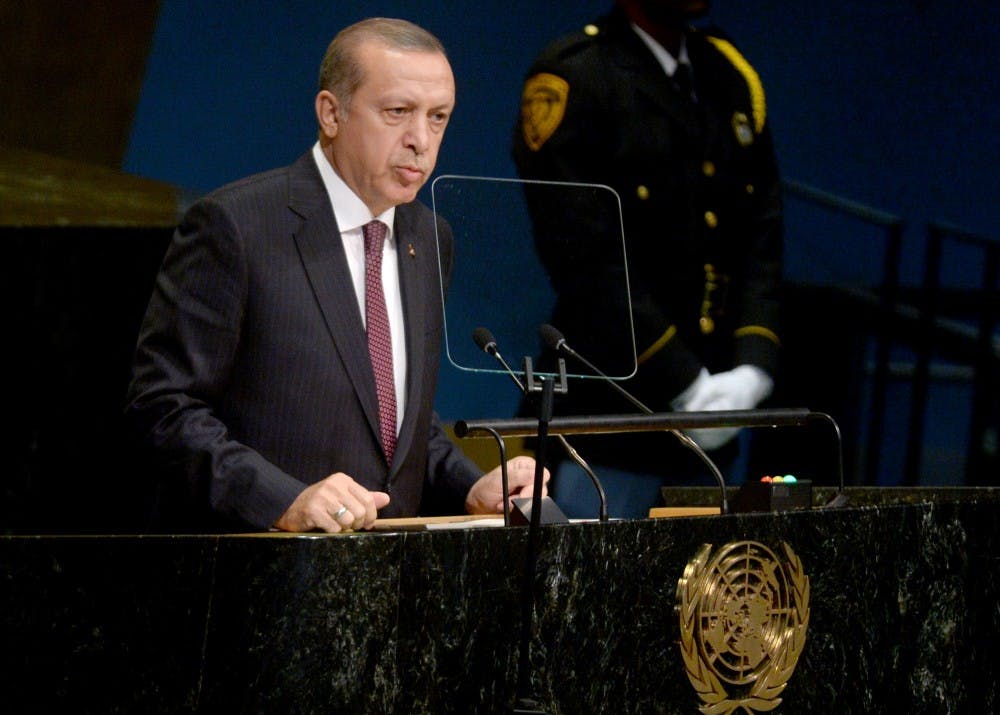President Trump’s decision in December to pull U.S. troops out of Syria worried lawmakers on both sides of the aisle and prompted the resignation of Secretary of Defense James Mattis and Special Presidential Envoy for the global coalition to counter ISIL Brett McGurk. The president’s declaration of victory over the Islamic State also came much to the surprise of those U.S. forces stationed in Syria.
It’s clear, however, that the incremental gains made in eastern Syria alongside allied Kurdish People's Protection Units forces have not only stabilized the region after ISIS control but also protected Kurds from Turkish aggression.
The decision to pull U.S. forces from Syria is miscalculated and dangerous.
Although the President recently promised “economic devastation” if Turkish forces engage with the Kurdish People's Protection Units inside of Syrian territory, his threats fall flat. Without American forces areas in areas recently liberated from ISIS, our Kurdish allies in Syria are left vulnerable to Turkish aggression.
Absent of a U.S. presence, Kurds in the eastern Syrian city of Raqqa face a similar fate faced by those in Turkish-controlled areas of Syria.
Turkey launched Operation Olive Branch in early 2018, taking the Kurdish-populated city of Afrin under siege. The operation destroyed the city and displaced 130,070 people, many of whom were Kurds whose properties were deliberately targeted and pillaged by Turkish forces.
Withdrawing troops means destabilizing recently restored sections of Syria and leaving the Kurds vulnerable to ethnic discrimination and displacement at the hands of Turkish forces.
Turkish President Recip Tayyip Erdogan has already publicly rejected a U.S. withdrawal proposal put forward by National Security Advisor John Bolton conditional on a Turkish pledge not to confront the Kurdish People's Protection Units in Syria.
Moreover, those opposed to the removal of U.S. forces fear that Turkish troops would use the absence of an American security buffer in eastern Syria to launch an operation similar to Operation Olive Branch in an effort to push out the Kurdish population there.
McGurk cautioned that without the U.S. as a partner and force in the region, the People's Protection Units are left to fend for themselves against a Turkish force that labels it a terrorist organization.
Proponents of the President’s decision on both sides of the aisle articulated various reasons for their support of the drawdown.
Senator Rand Paul commended the President and cited the need for America to remove itself from “forever wars.”
On the opposing side, Rep.Ted Lieu, D-Calif., supported the troop removal, arguing that there was never a clear strategy for Syrian military intervention since its outset.
It may very well be true that “the American people are tired of war,” as Senator Rand Paul said, or that there was no clear strategy for U.S. operations in Syria. However, it’s also the case that the U.S. presence in eastern Syria played a crucial role protecting our Kurdish allies from a similar fate to those in Afrin.
The President’s hasty decision to remove U.S. forces from Syria surprised the highest levels of the military. It was hailed by supporters as a pragmatic move to get troops out of a rabbit hole seen all too often in the Middle East.
The reality, however, is that the removal of troops from Syria threatens our Kurdish partners in the region and hangs them out to dry in the face of Turkish aggression.






